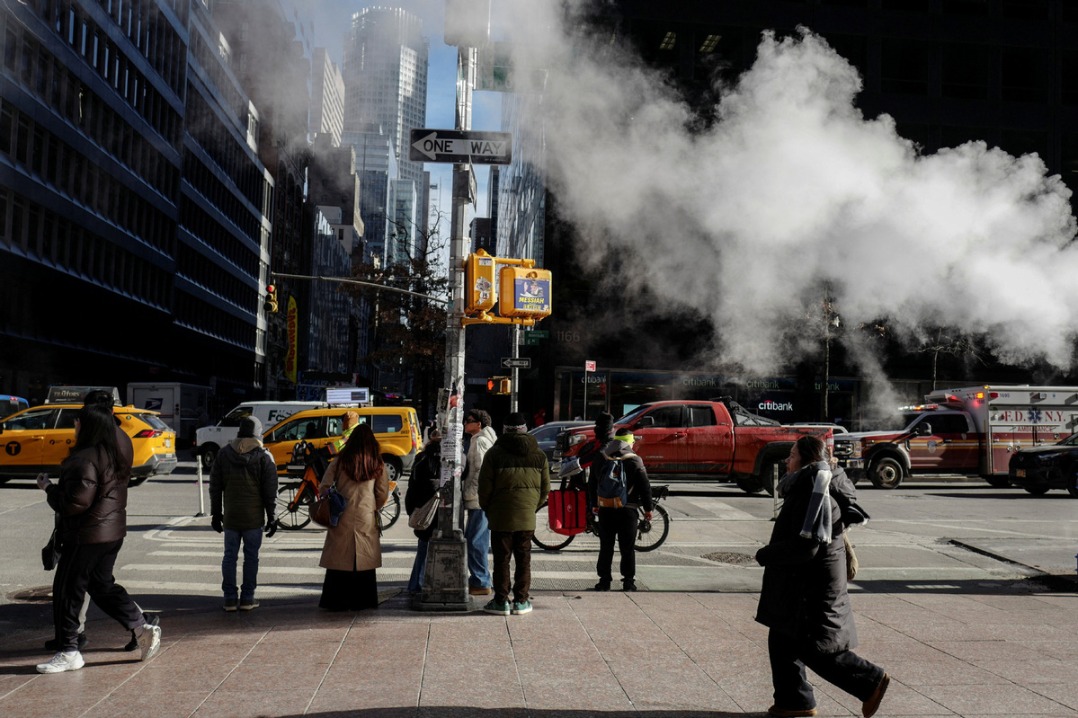Drug promoted by Trump linked to higher death rate


A study of 96,000 hospitalized coronavirus patients who received the anti-malaria drug being taken by US President Donald Trump to guard against getting the coronavirus found that those who received the drug were more likely to have abnormal heart rhythms and were more likely to die, according to a study published Friday in the medical journal The Lancet.
The study's authors recommended that hydroxychloroquine, and the closely related drug chloroquine, shouldn't be used to treat patients outside of clinical trials, as they found it didn't benefit people suffering from COVID-19.
The study is the largest analysis to date of the risks and benefits of treating COVID-19 patients with anti-malaria drugs. It is based on data from 96,032 coronavirus patients from 671 hospitals around the world. Observational studies like this one can't provide definitive evidence about drug safety and effectiveness.
But the authors of the study recommended that the drugs not be used outside clinical trials, and they said carefully controlled trials were urgently needed. Several clinical trials are underway around the world.
Trump has hailed hydroxychloroquine as a "game-changer" for COVID-19. He said this week he was taking it as a preventive measure against the disease. He has since said he is close to finishing his course of treatment and would stop taking the medication in "a day or two''.
Past studies also haven't supported hydroxychloroquine's benefit for treating sick patients, and there have been reports dangerous heart problems associated with its use. The Food and Drug Administration (FDA) last month warned against the use of the drug outside hospital settings or clinical trials.
Peter Lurie, a former top FDA official who now heads the Center for Science in the Public Interest, told The Washington Post that the study is "another nail in the coffin for hydroxychloroquine — this time from the largest study ever".
He said it was time to revoke the emergency use authorization issued by the FDA, which approved the drug for seriously ill patients who were hospitalized or for whom a clinical trial was not available.
Michael Felberbaum, a spokesman for the FDA, told The Washington Post on said Friday that agency generally "does not comment on third-party research" but that an emergency use authorization may be revised or revoked under certain circumstances, such as when there are linked or suspected adverse events, new data about effectiveness, or a change in the risk-benefit assessment.
"It's one thing not to have benefit, but this shows distinct harm," Eric Topol, a cardiologist and director of the Scripps Research Translational Institute, told The Post. "If there was ever hope for this drug, this is the death of it."
The new study included patients with a positive laboratory test for COVID-19 who were hospitalized between December 20, 2019, and April 14, 2020, at 671 medical centers on six continents. The mean age was 54 years, and 53 percent were men.
The new study's findings cannot necessarily be extrapolated to people with mild illness at home or those, like Trump, who are taking the antimalarials as a prophylactic. The president stunned many doctors earlier this week when he said he was taking a pill "every day" — despite FDA warnings that the use of the drug should be limited to those in a hospital setting or in clinical trials. (He has since said he is close to finishing his course of treatment and would stop taking the medication in "a day or two.")
A large study of health-care workers that examines the use of hydroxychloroquine as a preventive measure against COVID-19 is in the works, but no results have been released.
































